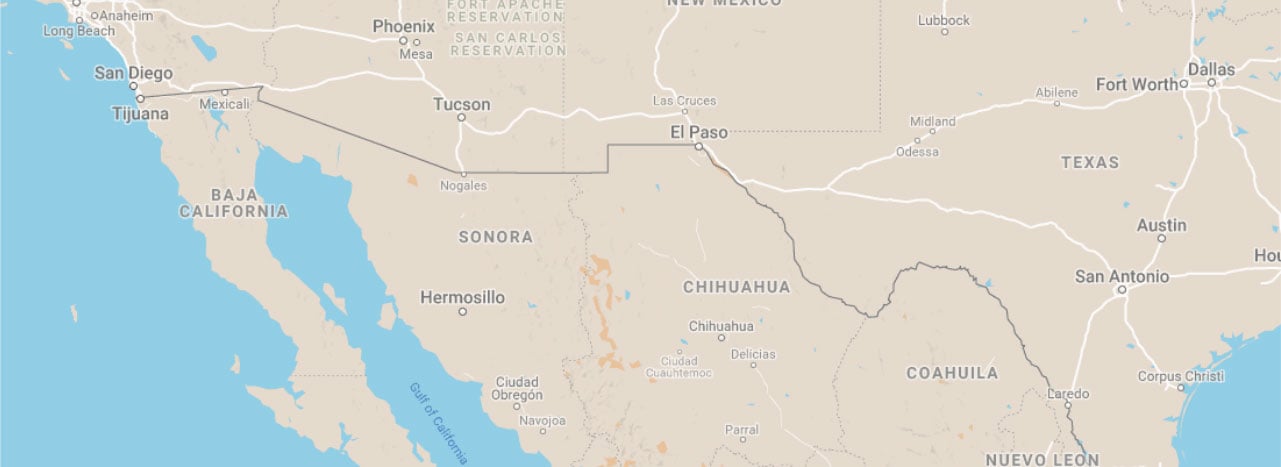Nogales, Sonora, Mexico
Nogales, Sonora, MexicoSolid Waste Project (Phase II): Sanitary Landfill & Waste Transfer Station for Nogales, Sonora
Project Status: Completed

General Information
Sector
Solid waste
Sponsor
H. Ayuntamiento de Nogales
Benefited population
213,976
Certification date
December 18, 2009
Financing
Project cost
US$2.97 million
NADBank Funds
US$1.00 million - SWEP grant
Related documents
Background
In 2007, the City undertook the first phase of its solid waste management improvement plan, which entailed replacing its collection equipment and reorganizing the collection routes. As a result, service coverage has increased from 80% to 98%. Currently, Nogales collects about 156,326 tons of solid waste annually.
The collected waste is mainly disposed of in the municipal landfill located within a mountain formation southwest of town. The first landfill cell (Cell A) was built in 1995 and has reached full capacity. Currently, waste is being dumped at a temporary location adjacent to Cell A. Lack of sufficient disposal capacity and improper disposal at the site creates breeding grounds for rodents and insects, as well as poses a potential risk for fire and contamination of the air, land and water.
To further improve management of its solid waste services, the City is now proposing a project to expand the sanitary landfill with the construction of the second cell (Cell B) and build a new transfer station on the southern outskirts of town.
Description
The Project consists of the following components:
- Construction of the first stage of Cell B at the existing landfill, with a an estimated total capacity of 487,339 yd3 and a useful life of approximately two years;
- Closure of the existing Cell A, including storm water and leachate control systems, as well as biogas and other environmental monitoring systems;
- Construction of a new transfer station south of the city, approximately 9.9 miles from the landfill, with a total estimated capacity of 345 ton/day; and
- Equipment to operate the new transfer station.
Benefits
Construction of the new cell will allow the City to continue providing safe and reliable sanitation services to local residents, as well as operate the landfill in compliance with state regulations. Closing the existing cell will eradicate the breeding grounds of rodents and other disease carrying vectors, as well as eliminate the risk of fire and contamination of land, air and water, thus protecting the environment and human health.